Identifying Electrical Engineer Job Opportunities and Growth Potential in the Aviation World
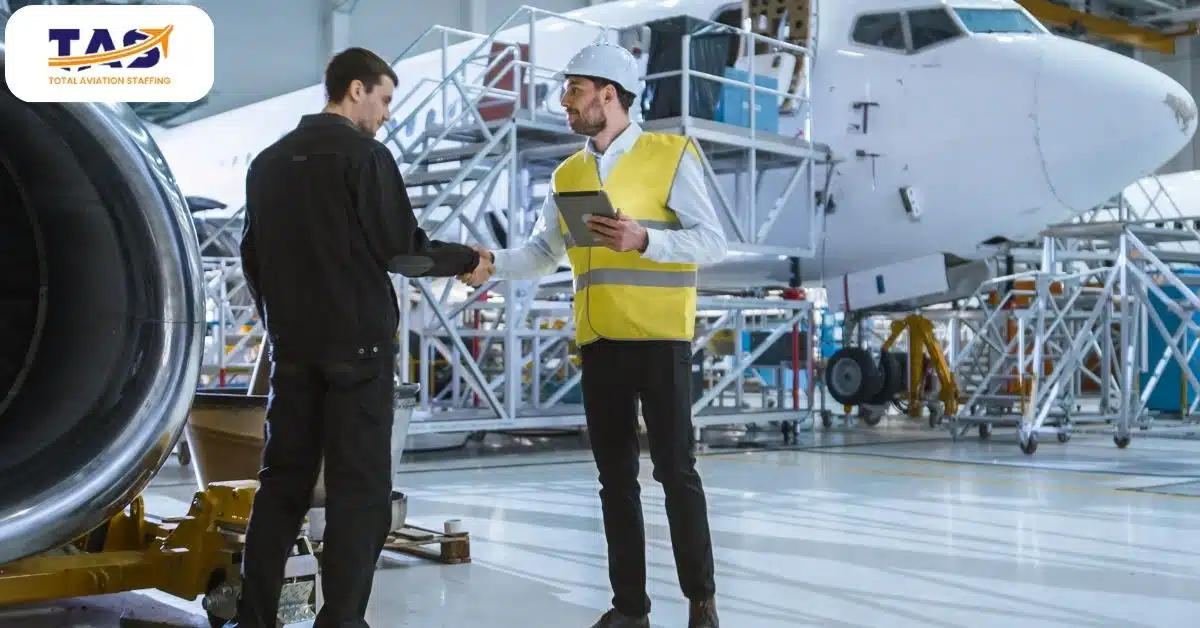
The aviation industry has long been an attractive career option for electrical engineers, offering a range of job opportunities and potential for growth. With its ever-changing technology and high demand for skilled professionals, the aviation sector provides exciting challenges that can lead to substantial rewards. From aircraft design to maintenance and repair, electrical engineers play a vital role in keeping the industry running and can enjoy lucrative salaries and career progression. In this blog, we’ll explore the different electrical engineering roles available in the aviation industry and discuss the potential for growth. We’ll also discuss how to take advantage of these opportunities and what qualifications are needed to succeed. So, if you’re a budding electrical engineer looking for your next challenge, read on and discover the potential of a career in aviation!
1. Aircraft Maintenance Electrical Engineer
Working as an Aircraft Maintenance Electrical Engineer in aviation can be immensely rewarding, due to the potential for growth and job opportunities that aviation is presenting. The aviation industry is innovating rapidly and the demand for aviation maintenance engineers capable of dealing with advanced, ultra-modern aircraft electrical systems is growing substantially.
Electrical engineers within aviation are responsible for testing, diagnosing, repairing, and maintaining aircraft electrical systems, making it a great option for someone who wants to be in engineering but enjoys hands-on problem-solving and challenges. Job opportunities are available nationwide as aviation companies prioritize safety and continue to expand their service offerings.
With technological advancements in aviation offering more exciting solutions on the horizon, now is the time to consider taking your career skyward with Aircraft Maintenance Electrical Engineer positions!
.webp)
2. Avionics Test Technician
Avionics Test Technicians play a key role in the aviation industry, forming an essential part of the electrical engineering profession. As such, they are responsible for testing aviation systems and components to make sure they’re up to aviation safety standards.
This can include working on both civilian and military aircraft, depending on what sector of aviation they specialize in. With many advancements in aviation technology constantly being made, avionics test technicians can expect a large number of job opportunities in this field to arise in the near future.
For those looking to get into the aviation electrical engineering industry, Avionics Test Technician is a great starting point that offers room for growth and development as their career progresses.
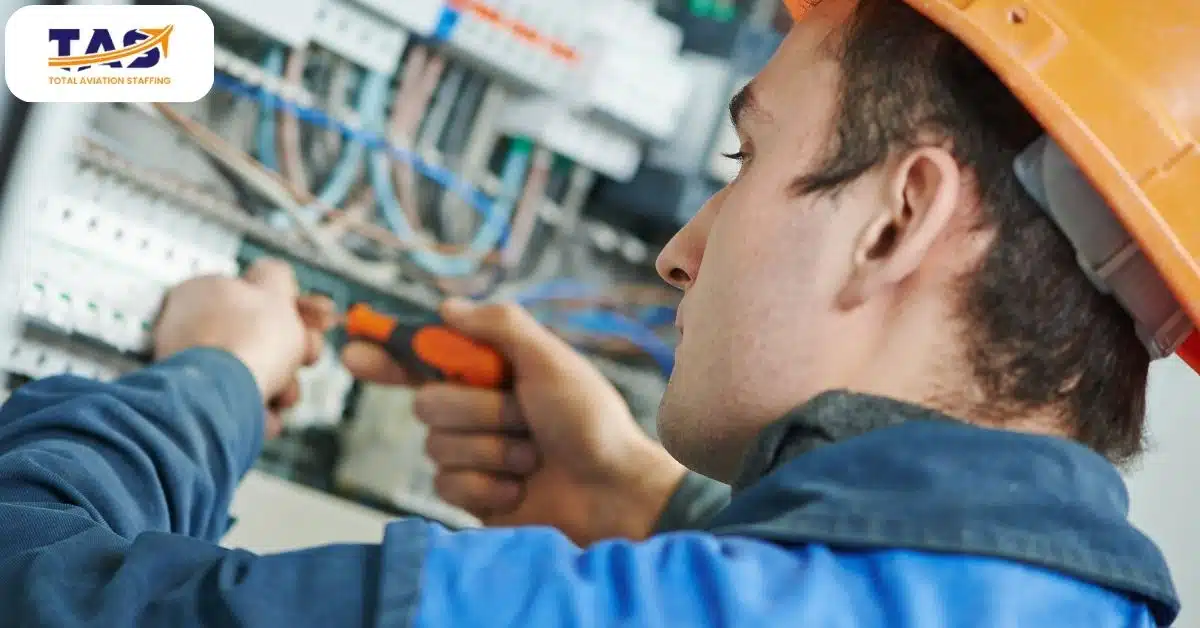
3. Aerospace Quality Assurance Inspector
Aerospace Quality Assurance Inspectors help ensure all of the aircraft’s electrical systems and components are functioning safely and according to aviation safety standards. This is a great career path for those who want to pursue a job in aviation, but don’t necessarily want to be hands-on with problem-solving.
Inspectors will test, inspect, and analyze all of the aircraft’s electrical components to make sure that they are functioning properly, as well as ensure all repair documents are accurate and up to date. With the industry continuing to grow, now is an excellent time for those interested in aviation electrical engineering to pursue a career as an Aerospace Quality Assurance Inspector.
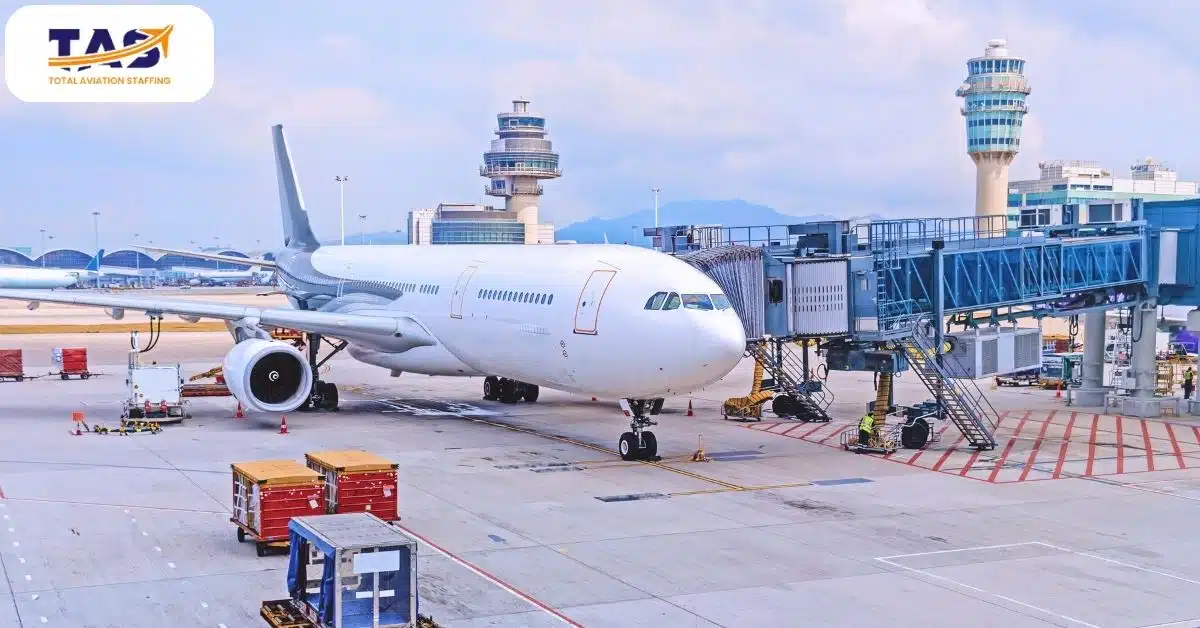
4. Senior Mechanical Designer-Aviation Components
As a Senior Mechanical Designer-Aviation Components, you will be responsible for designing and creating cutting-edge parts and components used in aviation. This is an invaluable job within the electrical engineering industry, as it allows you to use your expertise to craft essential pieces of aviation technology.
Working on projects with both commercial and military aircraft can be incredibly rewarding and a great way to develop your skills, making this job ideal for those interested in aviation electrical engineering. With the rapid advancement of technology within aviation, now is the time to get into this field and make sure you stay ahead of the curve!
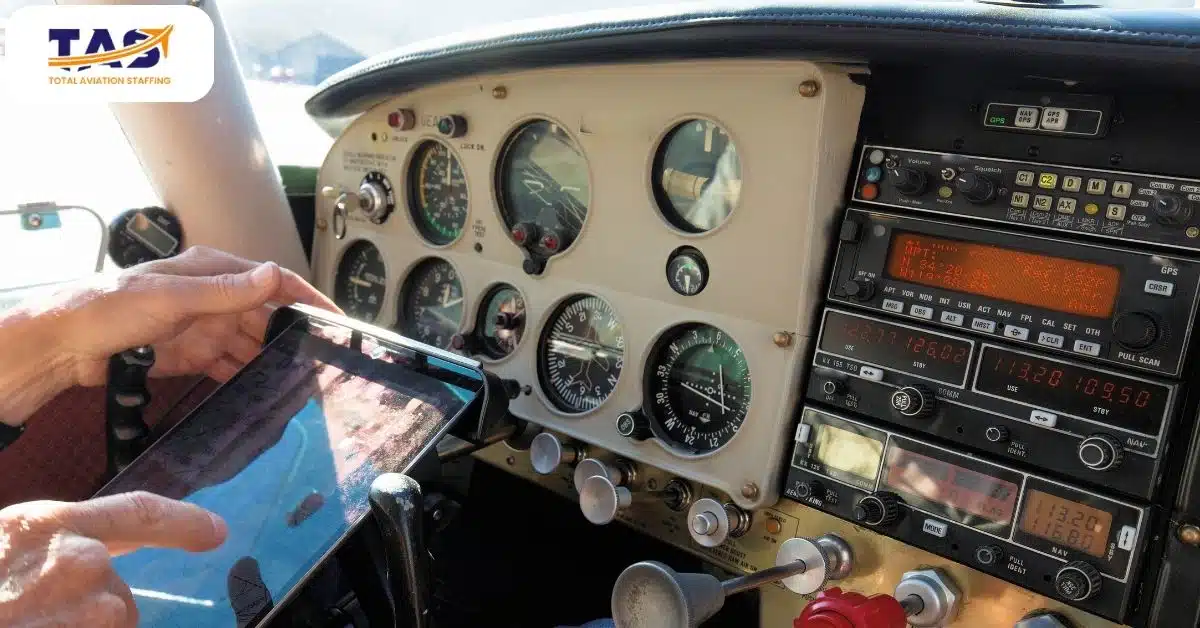
5. Flight Simulator Design and Support Engineer
Flight Simulator Design and Support Engineers design, develop, and maintain flight simulators used in aviation training. This is an excellent job opportunity for those looking to advance their career in aviation electrical engineering – as they will be responsible for creating lifelike simulations of aircraft’s electrical systems.
To become a Flight Simulator Design and Support Engineer, you’ll need to have a solid understanding of electrical engineering and an aptitude for problem-solving. With the aviation industry continuing to expand and develop new technologies, this is a great career path for those interested in getting into the field.
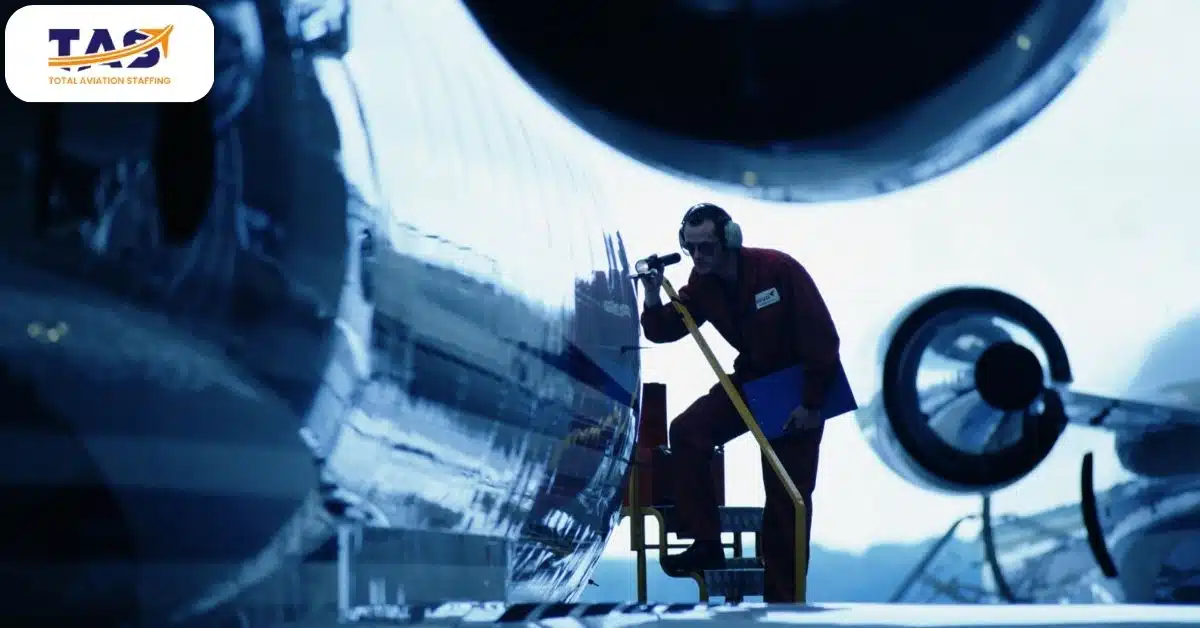
6. Aviation Program Manager
Aviation Program Managers are responsible for overseeing the development and implementation of new electrical engineering projects in the aviation industry. This job requires knowledge and understanding of both electrical engineering and project management, as well as a clear understanding of aviation safety standards.
Aviation Program Managers are also responsible for ensuring all systems, components, and processes are running efficiently and according to safety standards. Those who thrive in this role will have great interpersonal skills, as they will be required to work with a team of engineers and technicians to develop the best aviation products possible.

7. Aircraft Electrician/Wire Harness Installer
Working as an aviation-oriented Aircraft Electrician/Wire Harness Installer is an excellent potential job opportunity for those who are interested in an electrical engineering career. Installing, troubleshooting, and repairing complex aviation electric systems is a highly skilled role that requires advanced training and qualifications in order to be successful.
Qualified individuals can look forward to a long and growing list of aviation job opportunities, especially as the aviation industry continues to develop and modernize. Necessary skills include knowledge of aviation safety protocols, wiring principles, aircraft electrical power systems, troubleshooting techniques, and the ability to manage multiple projects at one time.
With their specialized skillset, qualified professionals should expect excellent wages commensurate with the position’s important responsibilities. Thus, electrical engineers interested in aviation have numerous possibilities for growth that are quite promising for their future careers.
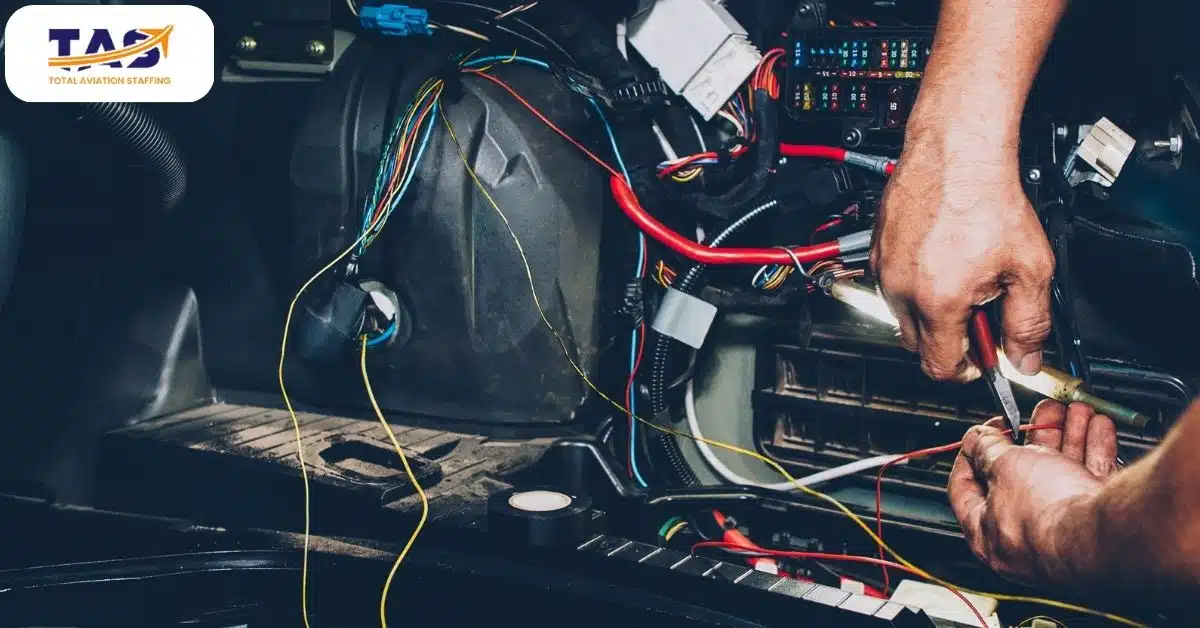
8. Airborne Electronic Warfare (Ew) Systems Engineer
Airborne Electronic Warfare (EW) Systems Engineers specialize in developing, testing, and maintaining systems used to identify, locate, and target airborne threats. This is a highly technical role that requires a deep understanding of electronics engineering principles and aviation safety standards.
Those who love working with technology will appreciate this job’s focus on the latest technologies associated with airborne threats.
Airborne Electronic Warfare (EW) Systems Engineers must also possess excellent problem-solving skills and be able to work independently on complex projects.
As technology continues to advance, the Aviation industry is always looking for qualified professionals who can develop cutting-edge solutions to protect pilots and their aircraft from modern threats. If this sounds like a career you’re interested in, then studying Electrical Engineering will give you the skills and knowledge needed to pursue this rewarding career.

In Conclusion
The aviation industry offers a wide range of exciting career opportunities for those interested in electrical engineering. Whether you’re looking to become a Flight Simulator Design and Support Engineer or an Airborne Electronic Warfare (EW) Systems Engineer, there are many different roles available that require specialized skillsets and knowledge gained from studying electrical engineering. With technological advancements continuing to modernize the aviation industry, now is an excellent time to get involved and start your career in this exciting field.
